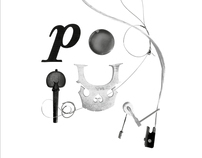

Accordingly, consensus statements have been provided on nutrition risk assessment and parenteral and enteral feeding strategies in the ICU, monitoring adequacy of, and tolerance to, nutrition in the ICU and institutional processes for nutrition therapy in the ICU.
KRISTIN HAGEN TEXTLAB SERIES
The Asia-Pacific and Middle East Working Group on Nutrition in the ICU has identified major areas of uncertainty in clinical practice for healthcare professionals providing nutrition therapy in Asia-Pacific and the Middle East and developed a series of consensus statements to guide nutrition therapy in the ICU in these regions. Furthermore, the lack of consistent data from randomized controlled clinical trials, reliance on expert consensus, and differing recommendations in international guidelines necessitate further expert guidance on regional best practice when providing nutrition therapy for critically ill patients in ICUs in Asia-Pacific and the Middle East. While these guidelines are consulted in ICUs across the Asia-Pacific and Middle East regions, there is little guidance available that is tailored to the unique healthcare environments and demographics across these regions. Guidance on managing the nutritional requirements of critically ill patients in the intensive care unit (ICU) has been issued by several international bodies. Sioson, Marianna S Martindale, Robert Abayadeera, Anuja Abouchaleh, Nabil Aditianingsih, Dita Bhurayanontachai, Rungsun Chiou, Wei-Chin Higashibeppu, Naoki Mat Nor, Mohd Basri Osland, Emma Palo, Jose Emmanuel Ramakrishnan, Nagarajan Shalabi, Medhat Tam, Luu Ngan Ern Tan, Jonathan Jit Nutrition therapy for critically ill patients across the Asia-Pacific and Middle East regions: A consensus statement. It also provides insight into the status quo regarding the treatment of acute diverticulitis and provides important direction for future research. This study demonstrates that there is more nonconsensus among experts than consensus regarding most issues, even in the same region. Controversy continues internationally regarding the management of acute diverticulitis. In addition, consensus was reached regarding many nonsurgical and surgical treatment strategies in complicated diverticulitis. A number of important topics, including antibiotic treatment, failed to reach consensus. In uncomplicated diverticulitis, consensus was reached regarding appropriate laboratory and radiological evaluation of patients as well as nonsurgical, surgical, and follow-up strategies. A clear definition of uncomplicated and complicated diverticulitis is provided. Twenty items were selected for inclusion in the consensus statement following 3 rounds of questioning. A consensus statement related to the management of acute diverticulitis. The Delphi study used 3 rounds of questions, after which the consensus statement was collated. The top 5 acute diverticulitis experts in 5 international geographic regions were identified based on their number of publications related to acute diverticulitis. A survey website was used and a panel of acute diverticulitis experts was formed via the snowball method. This study was conducted using the Delphi technique from April 3 through October 21, 2014. To generate an international, expert-based, consensus statement to address controversies in the management of acute diverticulitis. This Delphi study provides consensus related to many aspects of acute diverticulitis and identifies other areas in need of research. O'Leary, D Peter Lynch, Noel Clancy, Cillian Winter, Desmond C Myers, Eddie


International, Expert-Based, Consensus Statement Regarding the Management of Acute Diverticulitis.


 0 kommentar(er)
0 kommentar(er)
